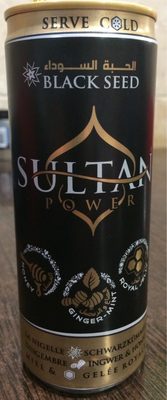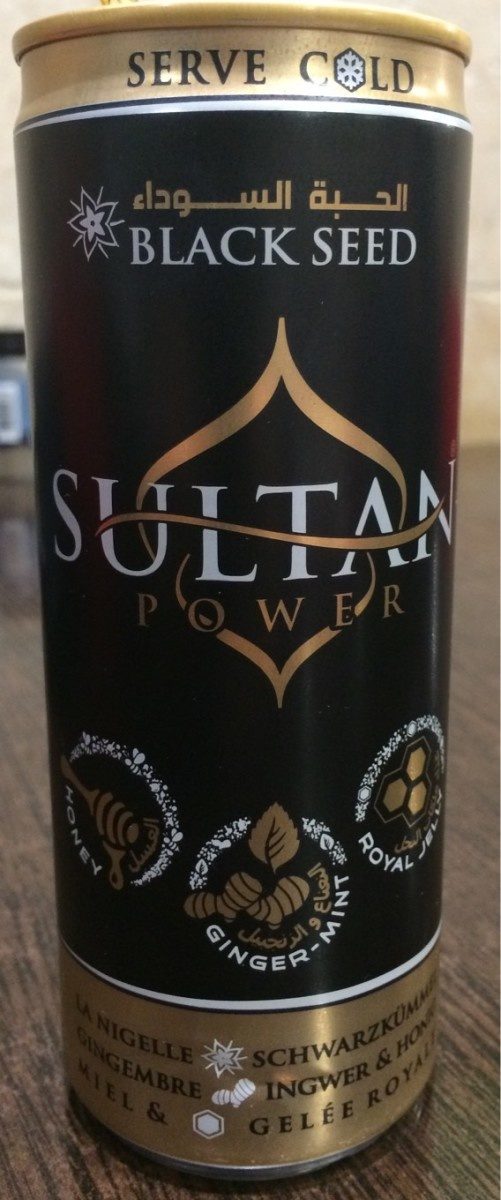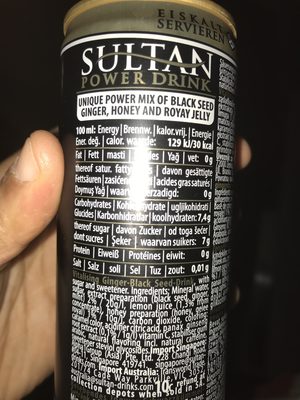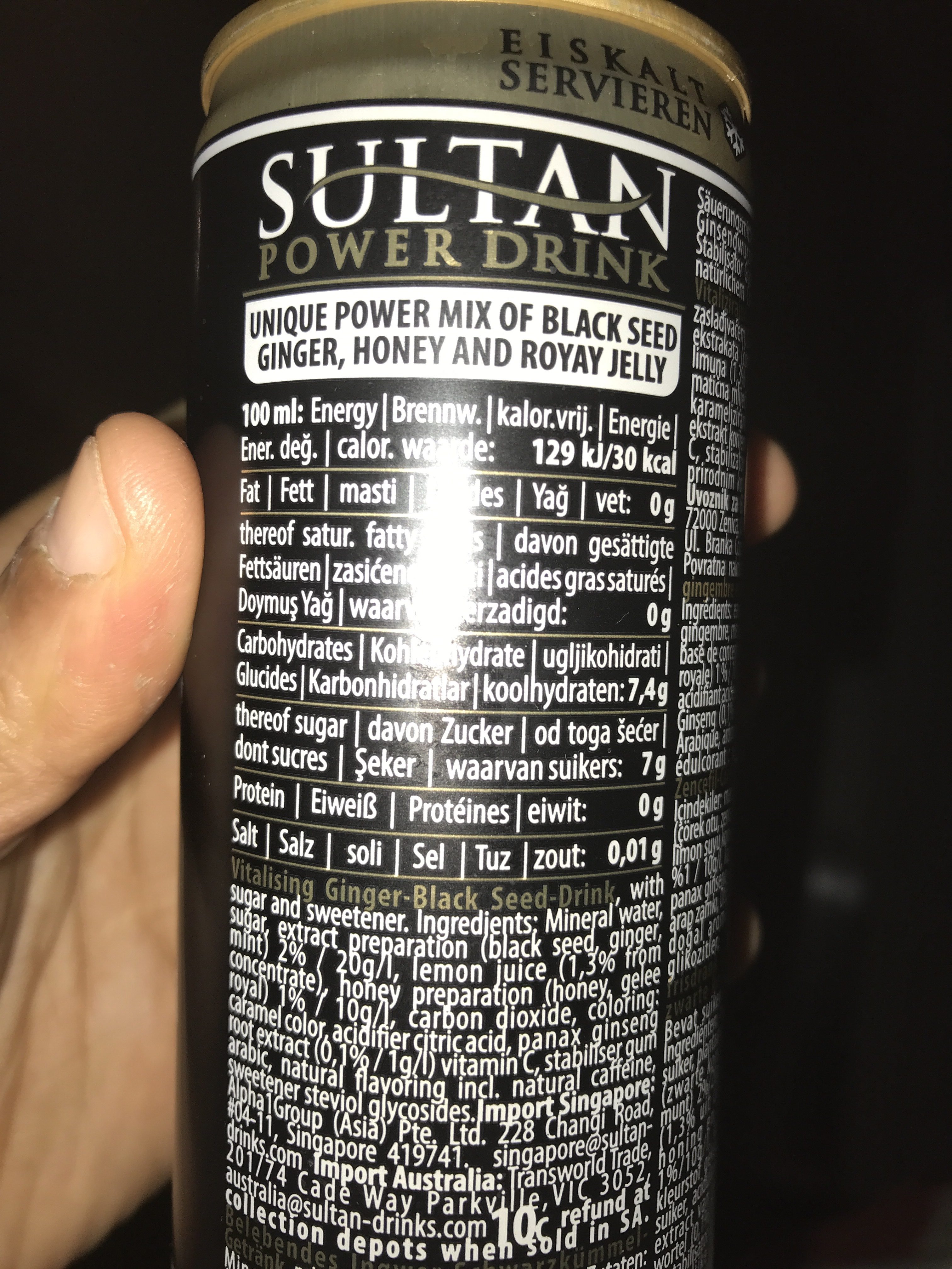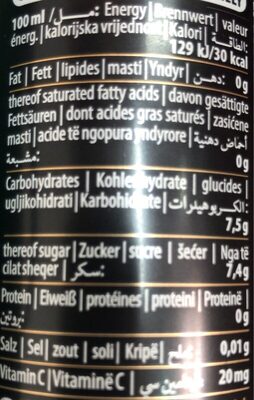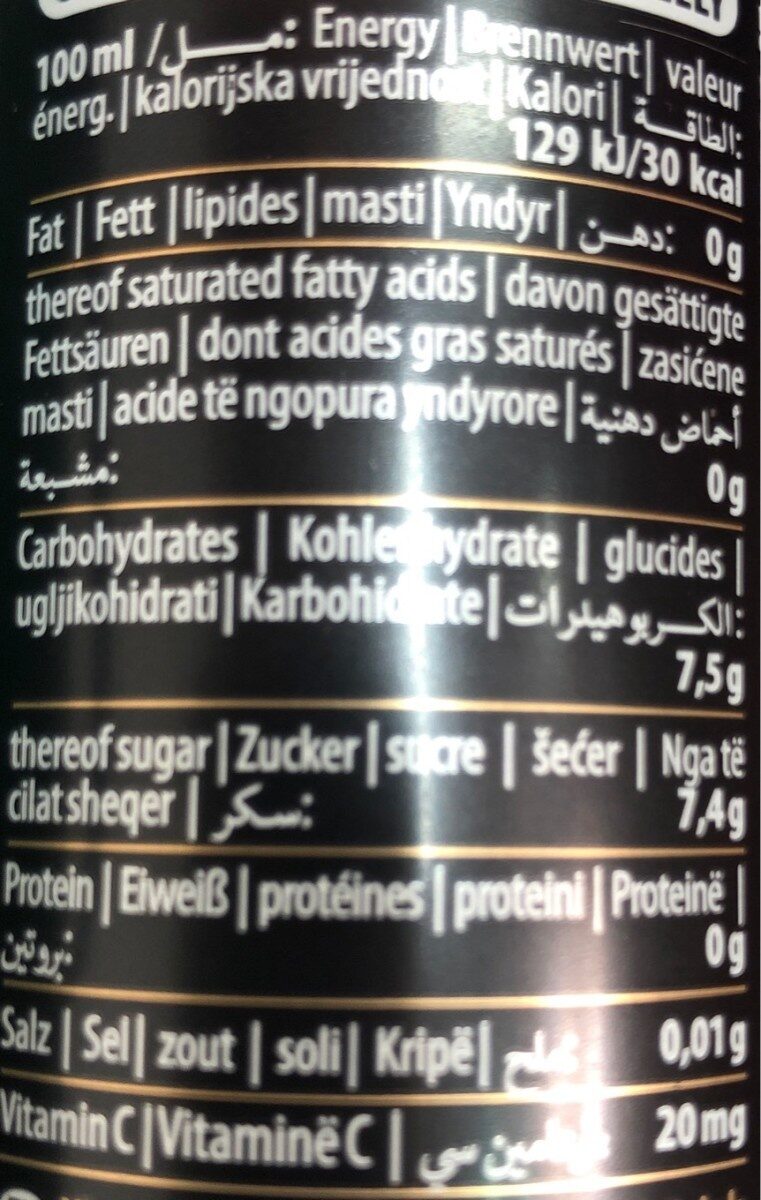Sultan-black Seed Soda-250ml-austria - 25 cl
This product page is not complete. You can help to complete it by editing it and adding more data from the photos we have, or by taking more photos using the app for Android or iPhone/iPad. Thank you!
×
Barcode: 9120059360120 (EAN / EAN-13)
Common name: Sultan Power Energie
Quantity: 25 cl
Brands: Sultan
Categories: Beverages, Artificially sweetened beverages, Non-alcoholic beverages, Unsweetened beverages, fr:Boissons sans sucre boissons énergisantes
Labels, certifications, awards:
Vegetarian, Halal, Kosher
Origin of ingredients: Austria
Manufacturing or processing places: Autriche
Link to the product page on the official site of the producer: https://sultan-naturaldrinks.com/product...
Countries where sold: France
Matching with your preferences
Environment
Packaging
Transportation
Report a problem
Data sources
Product added on by kiliweb
Last edit of product page on by roboto-app.
Product page also edited by cbastien, openfoodfacts-contributors, packbot, yuka.E5F_LYOqJeAjEsvL1aQkzhfgF_76Ic9XHGI3og, yuka.SGEweFBQZytvdWRSdGM4ZTV6cUlvODV6N01XWGJVNllLOW83SVE9PQ, yuka.UpxuYP6LHeYxO8jf-pg57BKrJOm4XO1jSHQjog, yuka.YjZzWk5hZ2dxdUFNcThJUzhqK0szUDlMNFphMGUxbWNLOGhOSVE9PQ, yuka.ZElKY1RJb2V0dklTaTg4QXBFakUwZHhON0lXV1QwT05DY2NYSVE9PQ.
